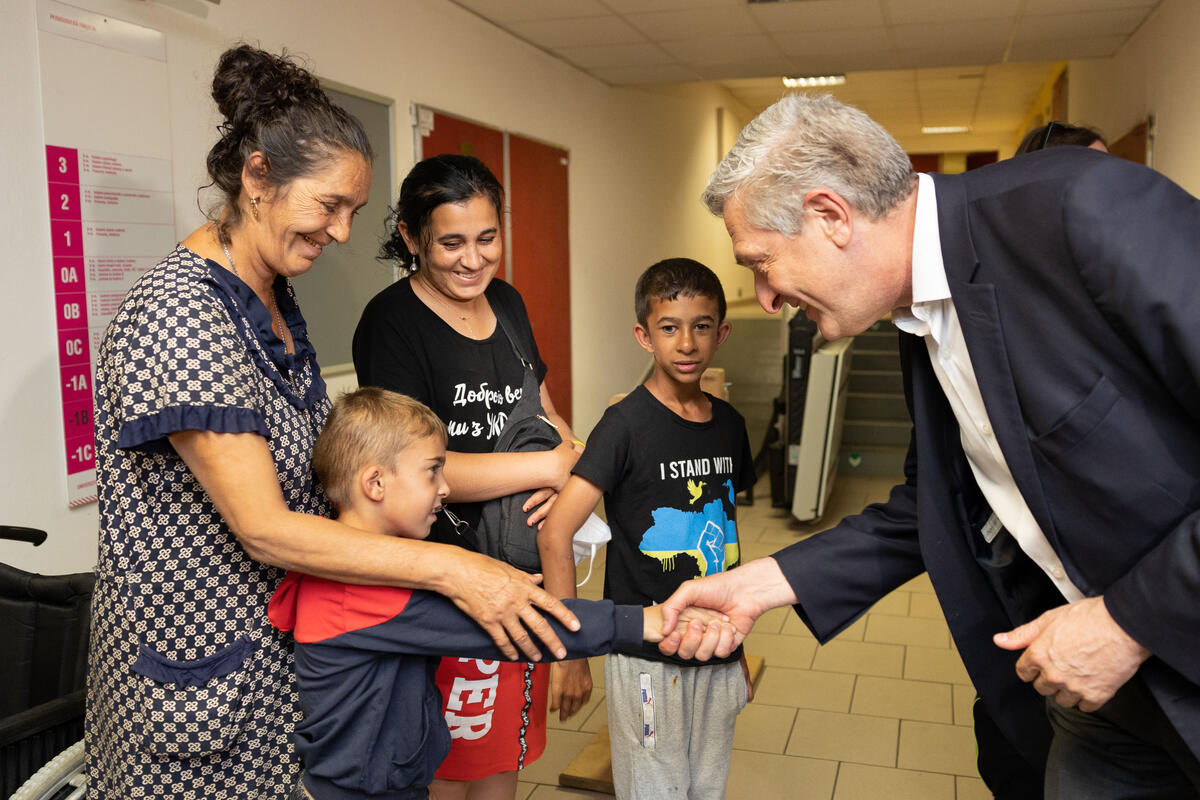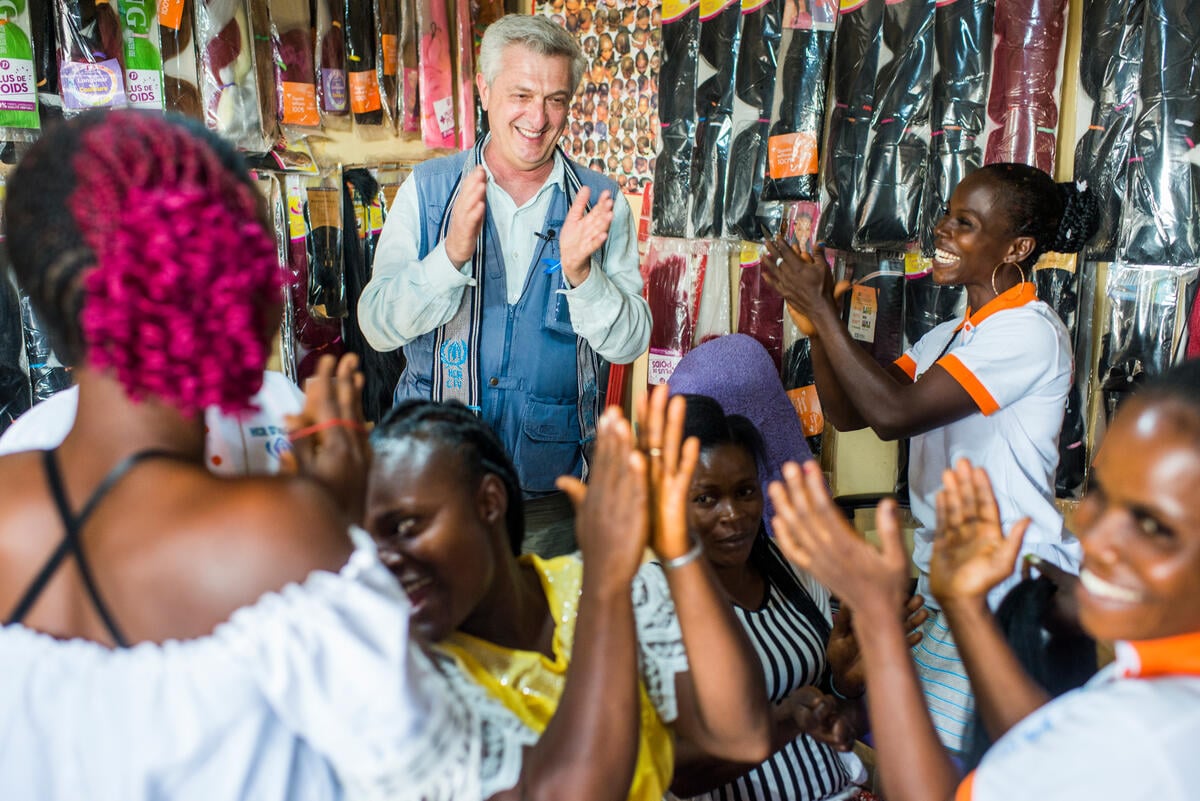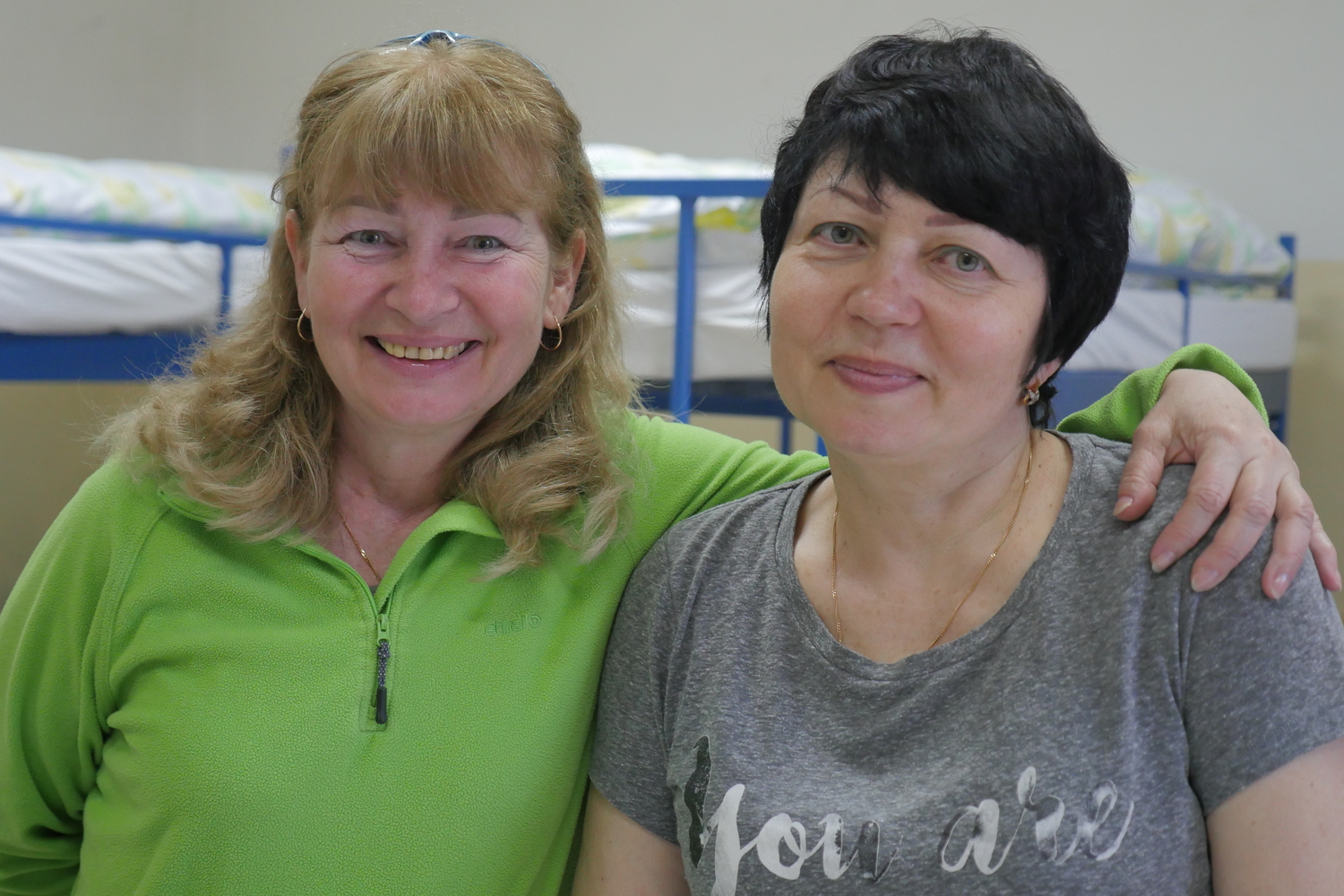UN refugee chief visits South Africa to show support for government and refugees
Wrapping up a two-day visit to South Africa, the UN High Commissioner for Refugees, Filippo Grandi, has expressed his continued support to its government, as it continues to ensure the protection of refugees and asylum seekers in the country.
Referencing South Africa’s decades of hospitality and open-door policy towards refugees and asylum seekers, Grandi commended the country for its efforts to encourage their socioeconomic inclusion.
“South Africa has been a place where many people have come to flee from war, conflict and persecution,” he said. "Like many other countries, South Africa is also challenged by increasingly complex migration flows, including people moving for economic opportunities."
During his visit which started on 14 October, Grandi met with NGO partner agencies, business leaders, key government officials, refugees and asylum seekers.
“I came here to discuss with the government how best to improve the way in which the country is receiving asylum seekers, dealing with their cases and ensuring that they are safe,” he explained.
He met with a group of refugees and asylum seekers at a community centre in Johannesburg’s Hillbrow suburb, who raised various concerns, following a recent spate of violence against foreigners in various parts of the country.
The group highlighted personal security fears, as well as problems in accessing and renewing documentation. They noted that this impacts their ability to work, and to access basic services like education and health, with particularly grave consequences for disabled, sick, and elderly people, and others with vulnerabilities.
They requested the High Commissioner to raise their concerns with the government. Grandi received the same request from a group of business leaders who told him that refugee employment is hampered by lack of documentation.
"I don't know where to begin again."
Wasenu, a 40-year-old refugee from Ethiopia, lost his business after it was broken into and looted.
“After many years of struggling to rebuild my life here, I feel hopeless. I don’t know where to begin again,” he said, adding that he has lived in the country for nearly a decade.
Congolese mother of seven, Thethe, 37, added that she has been waiting for years to get proper documentation that reflects her status as an asylum-seeker.
“It is difficult to even get proper access to services like medical care when you don’t have papers,” she explained.
Grandi met President Cyril Ramaphosa, as well as Home Affairs Minister Aaron Motsoaledi. With both, he had frank and constructive discussions about the situation of refugees and asylum-seekers in the country in the broader context of its migration challenges.
He commended the President’s commitment to protecting people fleeing countries affected by conflict and persecution and noted that many South Africans had themselves experienced exile, and the return of refugees from abroad was part of the country's own journey from apartheid to democracy.
“The President has been very clear that this country does not tolerate violence,” he said. “The fight for freedom against injustice remains at the core of South Africa's values." But poverty and inequality are creating tensions among communities - UNHCR, together with partners in the UN and civil society, will continue to work on social cohesion projects in communities hosting refugees across the countries.
He added that despite the challenges of increased displacement in the region, South Africa has continued to be at the forefront in advancing progressive policies towards migrants, refugees and asylum seekers.
“South Africa has a very exemplary policy of receiving people in distress from many parts of Africa and even beyond,” he said. “Now, of course I understand the difficulties. We are working on them.” The High Commissioner and the Minister of Home Affairs agreed that it was important to work on the asylum system in South Africa in order to make it more efficient and fair. UNHCR will continue to provide support and advice accordingly.
"We are all Africans."
The refugee chief also visited Jules High School, an inclusive secondary school that enrols over 900 students,including refugees, asylum seekers and South African nationals. Encouraged by the diversity at the school, Grandi spent time interacting with the students who shared their experiences of learning side by side.
“I choose to look to the brighter side of learning with students from different countries and see it as an opportunity to teach people and also learn from different people just how alike we are,” said one Grade 10 student.
“We are all Africans. We should be interacting on a more positive level,” added the 16-year-old.
South Africa hosts over 260,000 refugees and asylum seekers, mainly from Somalia, Ethiopia, Zimbabwe and the Democratic Republic of the Congo.











